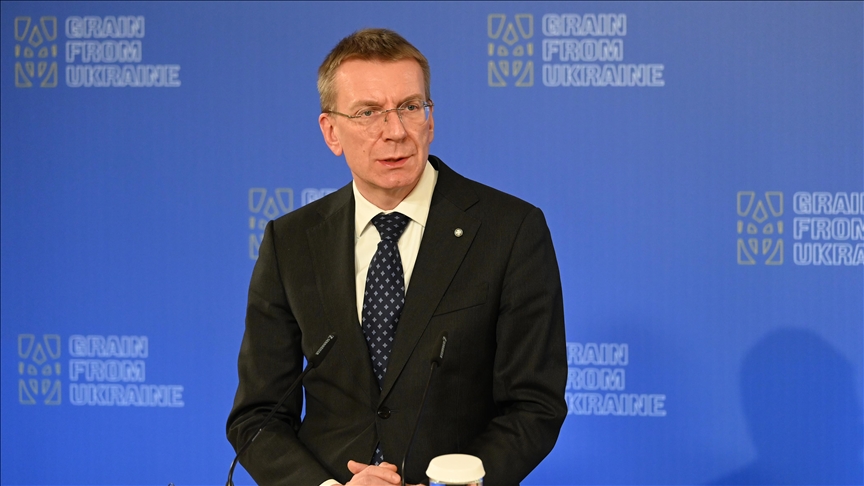BERLIN
Future relations between the US and European countries will increasingly be shaped by pragmatic interests rather than shared values alone, Latvia’s president said on Sunday.
“It’s not a love and hate relationship, and most probably we have to get into the transactional mode, we need to understand that this is changing,” Edgars Rinkevics said at the Munich Security Conference.
His comments came after recent statements by top US officials declaring that the US is no longer “primarily focused” on Europe’s security, and American military commitments to European security would not continue indefinitely.
“If we are strong (as Europeans), if we have something to offer, then we are going to be interesting to the US. If we just continue having those nice conferences talking and whining, we are not going to be interesting,” Rinkevics said.
US Vice President JD Vance sparked controversy on Friday when in a speech to the conference he accused European governments of anti-democratic practices, specifically criticizing restrictions on social media posts and their stance against far-right and right-wing populist parties.
Rinkevics also expressed unease over Vance’s speech but cautioned against emotional reactions.
“We should take a deep breath to think about what has happened here – we do have a very emotional situation at this point,” he said. “We’re seeing strong statements from both the United States and some of our European friends.”
Rinkevics said Europeans have legitimate concerns due to fake news and influence operations orchestrated by Russia.
“While we cherish very much freedom of speech, we also see Russia using information, migration, energy – especially information – as weapons,” he said, adding that these concerns should be better communicated to the Trump administration in the coming weeks.
US-European relations hit a new low after Vance’s controversial speech and Trump envoy Keith Kellogg’s announcement that Europeans would not be invited to planned US-Russia talks on Ukraine peace. US President Donald Trump began discussing a potential peace process in Ukraine directly with Russian President Vladimir Putin last week, without consulting Europeans.
However US Defense Secretary Pete Hegseth told his European counterparts last Wednesday that it will be the European countries who should send their troops to Ukraine as part of a potential peace settlement.
“If these troops are deployed as peacekeepers to Ukraine at any point, they should be deployed as part of a non-NATO mission. And they should not be covered under Article 5,” Hegseth said, adding that as part of any security guarantee, no US troops will be deployed to Ukraine.

